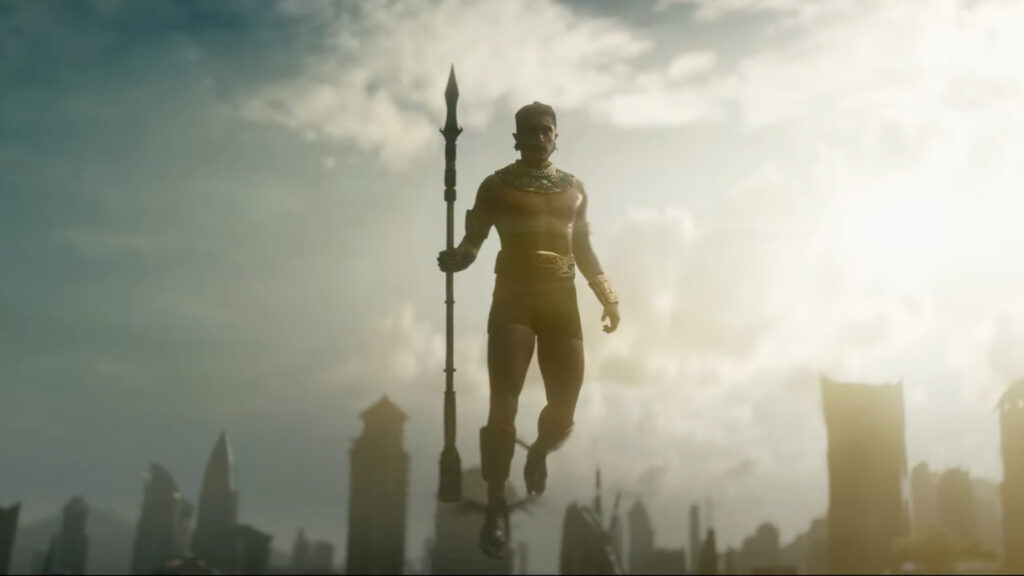Black Panther: Wakanda Forever Artfully Brings Both Closure And A New Chapter

On Aug. 28, 2020, we lost one of the entertainment industry’s most phenomenal talents in Chadwick Boseman, the man who brought T’Challa, the original Black Panther, to life. His dedication to the role cannot be understated, which makes Kevin Feige’s decision to not recast the role divisive yet understandable. I have a personal connection with this franchise myself, but more on that later. For now, let’s discuss Black Panther: Wakanda Forever, in this spoiler-free review.
Taking place after the events of Avengers: Endgame, the film begins with the nation of Wakanda mourning the loss of King T’Challa who succumbed to an illness. With the nation coming to grips with this devastating loss, Princess Shuri buries herself in her work to numb the pain. After a year has passed, Wakanda is faced with threats from many sides; the UN who is relentlessly urging the nation to share its vibranium resources with the rest of the world and a new threat, the oceanic nation of Talokan, lead by the mutant king K’uk’ulkan also known as Namor. After the UN attempts to seek Talokan’s vibranium supply, a connection to Wakanda leads Namor and his people to take it as a declaration of war.
This film is among the best work that director and co-writer Ryan Coogler has done, not to discount anything in his resume of course. You can tell he put his heart into it from the script alone — it felt like a beautiful tribute to Boseman throughout the film’s runtime.
The overarching themes of grief and forgiveness resonate strongly in this movie, especially in Shuri’s character arc, played excellently by Letitia Wright. Danai Gurira brought a lot more depth in her performance as Okoye than in the previous movie. Her character is put through so much, but all for the sake of giving her more agency. Returning cast members Angela Bassett, Martin Freeman, Winston Duke, and Lupita Nyong’o exercised their grief in their performances as well, especially with the tears that were shed over T’Challa.
Relative newcomer to American cinema Tenoch Huerta captured the duality of Namor beautifully, a prime example of Chaotic Good if I ever saw it. Every action his character took (no matter how violent) was toward the betterment of his people. Dominique Thorne, who played Riri Williams, was likable enough but didn’t leave a huge impression on me; here’s hoping she’s able to bring more substance to her character in the upcoming Ironheart series on Disney+. I also was delighted to see Michaela Coel in this film. She’s one of my favorite black actresses and brought some of her fantastic comedic timing to the role.
The action set pieces were as stunning as ever, but the soundtrack, while amazing, pales in comparison to its predecessor. Also, the CG was a huge step up from the original, a great example of how all aspects of filmmaking and a CG in particular is a learning process. I can’t praise the fight choreography enough. As someone with a martial arts background, I live for this stuff, and to put the fights into words would not do them justice.
So this movie had me crying by the end, and that’s because my birthday is August 28, the same day that Chadwick Boseman died of cancer. His death left a profound impact on my life, and much like Shuri, I found myself processing the loss related to his death. I felt like I had lost a family member but through this film, I was able to finally let go of my own grief. As the tears streamed down my face, I smiled at this cinematic celebration of the life of one of Hollywood’s most prolific actors.
Thank you, Ryan Coogler and more so, thank you Chadwick Boseman.
I give Black Panther: Wakanda Forever (Marvel Studios; PG-13; 2hrs, 41mins) a 4 out of 5.



